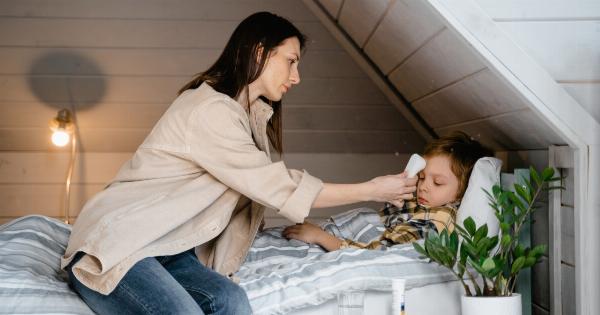As a parent, there’s nothing worse than seeing your child feel miserable and sick. When your child wakes up in the morning and has a fever, you may wonder if you should still send them to school.
And if not, how do you know when it’s time to keep them home?.
In this article, we’ll discuss what signs to look for when determining if your child is too sick for school, and what steps you can take to help them feel better.
Signs Your Child is Too Sick for School
Before you decide whether or not your child should stay home from school, you need to assess how sick they are. Here are some signs that indicate your child is too sick for school:.
Fever
If your child has a fever of 100.4°F (38°C) or higher, you should keep them home from school. This is a sign that they are fighting off an infection, and it’s best for them to rest and recover at home.
Vomiting or Diarrhea
If your child is vomiting or experiencing diarrhea, they aren’t just feeling unwell, but they could also infect other children and teachers. Keep your child at home until they haven’t vomited or had diarrhea for at least 24 hours.
Cold Symptoms
If your child has a cold with a runny nose, cough, and sore throat, they may not feel well enough to attend school. It’s challenging to concentrate and learn when you are feeling unwell.
Keep your child at home to rest and prevent the spread of their illness.
Pinkeye
If your child has pink eye, they should stay home for at least 24 hours after starting treatment. Keep your child at home until they are no longer contagious and their condition has improved.
Skin Rashes
If your child has a rash that hasn’t been diagnosed, it’s best to keep them home until you know what the rash is and whether it’s contagious.
If the rash is contagious, keep your child home until they are no longer contagious or until they have completed treatment.
Head Lice
If your child has head lice, they should stay home until treatment has been completed, and all the lice and eggs have been removed. Check with your school district for their head lice policy before returning your child to school.
Steps to Help Your Child Feel Better
If your child is too sick for school, there are several steps you can take to help them feel better:.
Rest
If your child has a fever, vomiting, or diarrhea, it’s essential to keep them hydrated and rested. Ensure they’re drinking plenty of fluids, and encourage them to rest and sleep as much as possible.
Medications
You can give your child over-the-counter medications to reduce a fever, relieve congestion, and ease sore throat pain. Be sure to read the label carefully and give the correct dosage for your child’s age and weight.
Hygiene
To prevent the spread of your child’s illness, encourage your child to practice good hygiene, such as washing their hands frequently, covering their coughs and sneezes with a tissue or their elbow, and avoiding close contact with others.
Returning to School
Once your child’s symptoms have subsided, and they’re feeling better, they can return to school.
However, it’s essential to check with your child’s school district for their policy on returning after an illness, as they may require a doctor’s note or a certain number of symptom-free days before allowing them to return.
Conclusion
As a parent, it’s essential to know when to keep your child home from school. If your child has a fever, vomiting, diarrhea, cold symptoms, pink eye, skin rashes, or head lice, they should stay home until their symptoms have subsided.
Taking care of your child at home by providing plenty of rest, administering the correct dosage of over-the-counter medication, and practicing good hygiene will help them feel better quicker and prevent the spread of their illness.



























